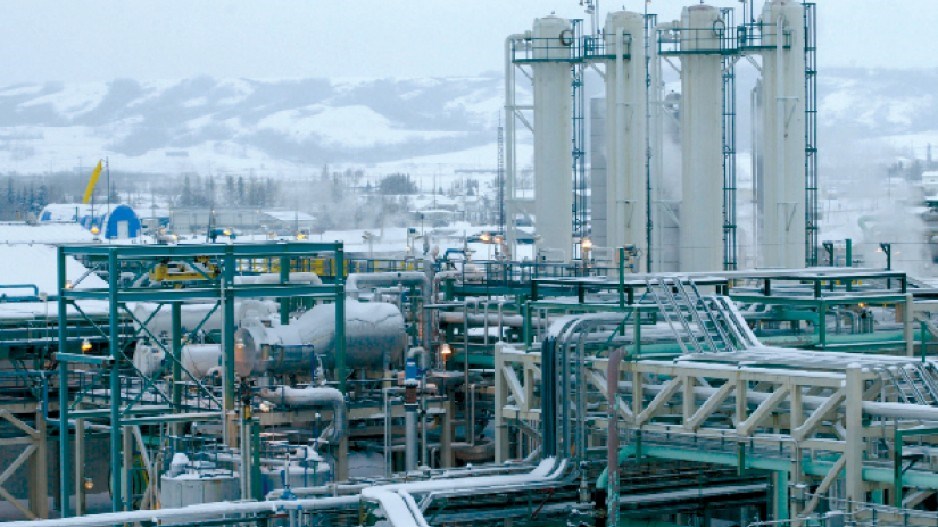Hordes of workers will be needed to support the billions of dollars of investment being sunk into northern B.C.’s natural gas industry.
Last week,
That plant will be among at least three others planned for the north coast, where gas from B.C.’s Horn River and Montney plays will be pumped across the province to the terminals and then shipped to customers in Asia.
Natural gas pipeline and processing giant
“The $1.5 billion program that we’re completing now is associated with 1,350 full-time jobs in support of construction,” Bloom told Business in Vancouver. “If you just think about how much larger the collective investment is going to be to achieve these LNG export projects … you very quickly get into thousands and thousands of jobs in British Columbia. It’s going to have a massive impact on the economy.”
Since 2009, Spectra has been in the midst of a major expansion program in the Fort Nelson area, which has included a massive gas processing plant to serve the Horn River basin.
Further south, near Fort St. John and Dawson Creek, Spectra is building another processing plant, and it has also undertaken two large pipeline expansions.
Bloom said the additional $4 billion to $6 billion the company plans to invest in B.C. would see a second phase of expansion in the Horn River basin and further expansion in the Fort St. John area.
Spectra is also exploring the idea of building gas liquids pipelines.
“The driver of those is that unlike natural gas prices, which have really fallen over the last two or three years, natural gas liquids prices tend to be more tied to crude oil prices and there’s value in extracting the liquids that are within the natural gas.”
Bloom added that the company also sees an opportunity to build pipelines to serve LNG terminals on the West Coast.
Spectra is so confident in the expansion of B.C.’s natural gas industry that its investments in recent years have transformed it into the single largest property taxpayer in the province, totalling $64 million per year.
But that investment is not without some risk.
The development of unconventional gas fields throughout the continent has resulted in a supply glut that has pushed gas prices to decade lows, ultimately threatening the viability of B.C.’s burgeoning gas sector.
In February, BIV reported that the supply glut has already affected provincial royalty revenue. (See “Shale supply glut slashes B.C.’s gas revenue” – issue 1165; February 21-27.)
Experts now believe the key to keeping the gas sector afloat, and continuing to attract investment, is to establish export markets via LNG terminals.
“We think exports to Asia are going to be critical for B.C.,” said Bloom. •




